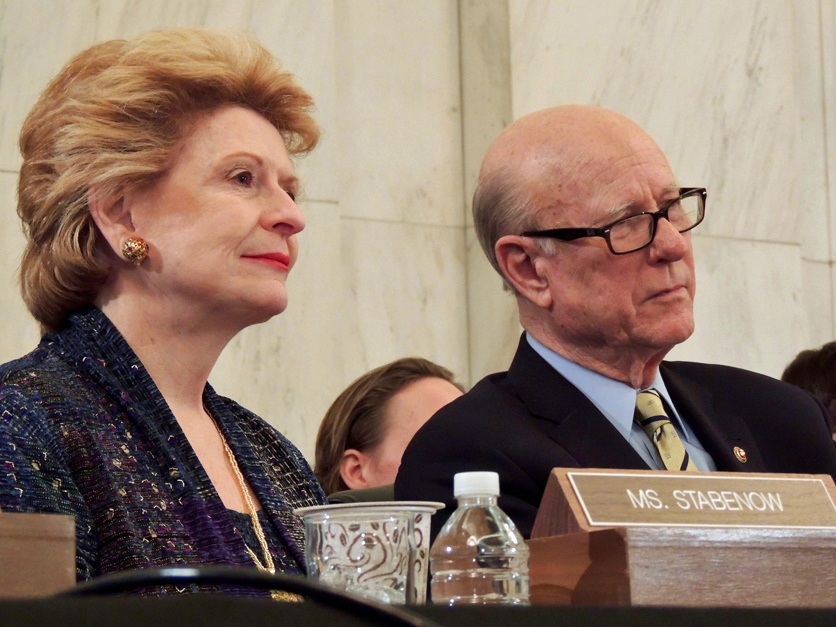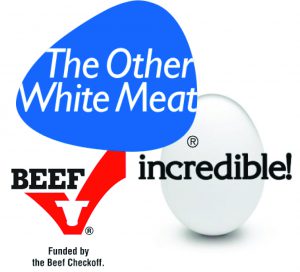Tell your Senators to support small farmers in the Farm Bill
 In the wake of the House’s defeat of its Farm Bill, the Senate is working on its own version of the bill. Senate Agriculture Committee Chairman Pat Roberts (R-KS) and Ranking Member Debbie Stabenow (D-MI) worked together and released a draft bill last week.
In the wake of the House’s defeat of its Farm Bill, the Senate is working on its own version of the bill. Senate Agriculture Committee Chairman Pat Roberts (R-KS) and Ranking Member Debbie Stabenow (D-MI) worked together and released a draft bill last week.
The committee will hold a hearing on the draft on Wednesday, June 13, and the full Senate is expected to vote on the bill later this month. Even if you have called your Senators about the Farm Bill, now is a good time to call again!
The Senate Committee version is a significant improvement over the House version of the Farm Bill. It continues the Conservation Stewardship Program, although with a small cut to its funding. It also keeps the Farmers Market & Local Food Promotion and the Value-Added Producer Grants Programs, combining them into a new “Local Agriculture Market Program” with $60 million in mandatory annual funding. And it does not strip local control over agriculture and food, nor does it create new loopholes to increase subsidies for mega-farms.
Unfortunately, the draft Senate bill essentially maintains the status quo, which is deeply flawed (although not as disastrous as the House version’s changes). Addressing the fundamental structural problems with the Farm Bill is not realistic this year — it will take years of building more political strength to be able to have that kind of an impact.
Some improvements are within reach. Here are three Senate bills that would significantly help independent farmers:
- The PRIME Act, S. 1232, which would allow states to set their own standards for selling meat within their states from custom slaughterhouses, addressing one of the biggest problems for local meat producers – the lack of small-scale processing options.
- The Opportunities for Fairness in Farming Act, S. 741, to reform the Checkoffs. While the Checkoffs would remain mandatory, S. 741 would prevent Big Ag trade organizations from pocketing the money and using it against our farmers’ interests.
- The New Markets for State-Inspected Meat and Poultry Act, S. 2814, which would allow meat processed in state-inspected slaughterhouses to be sold across state lines. Even though state-inspected slaughterhouses have to meet all the federal standards, meat processed in them can only be sold in-state under current law, posing a significant problem for small producers who live near state lines.
Can you help get these reforms included in the Farm Bill?
TAKE ACTION: Call your U.S. Senators
Call both of your U.S. Senators and urge them to include theses three bills as amendments to the Farm Bill.
You can find out who represents you by going to www.senate.gov/senators/contact or by calling the Capitol Switchboard at 202-224-3121.
A sample message for calls/voice mails/emails is below. You can pick just one, two, or all three issues to discuss. For the greatest impact, personalize the message to explain why the issue(s) are important to you. Your call or email will have a much greater effect if they know that it truly matters to you, individually, and that you’re not just reading a script.
Hi, I’m _____ from _____. I’m a __________ [farmer, local food consumer, chef…]
As a constituent, I urge Senator _______ to improve the Farm Bill by adding three amendments to protect independent farmers and ranchers:
First, add the PRIME Act, S. 1232. This bill addresses the severe shortage of processing facilities for small-scale producers in many areas of this country. It allows states to set their own standards for meat that is processed and sold within the state directly to consumers, providing more options for livestock farmers and the consumers who want locally raised meat.
Second, add the New Markets for State-Inspected Meat and Poultry Act, S. 2814, which would allow meat processed in state-inspected slaughterhouses to be sold across state lines. Small farmers often don’t have a USDA-inspected slaughterhouse near them, and thus are barred from selling meat even to nearby communities that are in their neighboring state. State-inspected slaughterhouses have to meet the same standards as USDA-inspected ones, so there’s no rational reason for the ban.
Third, bring transparency and accountability to the Checkoff programs by adding S.741. The Checkoffs tax farmers for marketing programs that promote mass-produced commodities. Not only does this encourage consumers to think all the products are the same — undermining specialty markets for locally raised, grass-fed, and other niche markets — but the Agribusiness trade groups that often control the Checkoff programs actually lobby against specialty producers’ interests! Tax dollars should only go to neutral entities that don’t lobby, and we need safeguards to ensure that the money is spent fairly.
Please let me know where the Senator stands on these issues. My phone number is ______. Thank you.
MORE INFORMATION
LOCAL MEAT PRODUCTION & THE PRIME ACT
Lack of inspected slaughterhouses is one of the biggest barriers for small-scale livestock producers. The lack of reasonable access to a slaughterhouse keeps some farmers from selling their meat at all. For many more, the distance they must travel to the slaughterhouse means significantly increased costs, as well as stress on the animal and lost time on the farm – all of which means less supply and higher prices for consumers.
Current federal law prohibits the sale of meat from “custom” slaughterhouses, which are regulated by the states independently of USDA regulations. The PRIME Act, S.1232, would empower states to not only set their own standards for custom slaughterhouses, as they already do, but to allow the sale within their state of custom-slaughtered beef, pork, lamb, and goat to consumers, restaurants, and grocery stores. This would provide more options for small farmers and increase the availability of locally raised meats for consumers.
INTERSTATE MEAT SALES
The limited options for meat processing are also a significant problem for small-scale producers who live near state lines. Even though state-inspected processors are held to the exact same standards as USDA-inspected processors (the only difference is who pays the individual inspector), meat processed at state-inspected plants cannot cross state lines.
The New Markets for State-Inspected Meat and Poultry Act, S. 2814, would allow meat processed in state-inspected slaughterhouses to be sold across state lines. Since these facilities meet all federal standards, it only makes sense that food processed in them could be sold in any state in the country.
Check out this article on the issue, with a quote from FARFA’s Executive Director at the end.
Read the Fact Sheet, produced by sponsor of S. 2814, Sen. Mike Rounds of South Dakota.
CHECKOFFS & TAXES on FARMERS
Under federal law, farmers of certain commodities (including pork, eggs, beef, and milk) are required to pay a portion of their sales into Checkoff funds. These mandatory fees are intended to be used to research and promote demand for those products. Campaigns such as “Got Milk?” and “Pork, the other white meat” are paid for by these taxes on farmers. Checkoff programs collect tens of millions of dollars from America’s farmers and ranchers every year.
 Nothing in the Checkoffs promotes local, organic, or sustainable production. To the contrary, the basic message is that all the foods are interchangeable commodities; conventional CAFO beef, imported beef, and the grass-fed beef from the farmer in your town are all rolled into “Beef, it’s what for dinner.”
Nothing in the Checkoffs promotes local, organic, or sustainable production. To the contrary, the basic message is that all the foods are interchangeable commodities; conventional CAFO beef, imported beef, and the grass-fed beef from the farmer in your town are all rolled into “Beef, it’s what for dinner.”
Even worse, the dairy checkoff has used its funds – some of which are paid by raw milk farmers – to do public ad campaigns and “educational programs” for dietitians that actively oppose raw milk access.
Moreover, these funds often wind up in the pockets of industrialized agriculture trade organizations. While they can’t use the money directly for lobbying, the funding helps them grow by underwriting their overhead, travel costs, etc. – and then they are free to use their other funds to lobby against the interests of family farmers, such as by opposing country of origin labeling.
Read about the Daily Caller’s investigation into dairy checkoffs:
“Got ‘Scam?’ – Dairy Farmers Are Getting Milked by the USDA’s Checkoff Program”
The best solution would be to make the Checkoffs voluntary, but the bill to do that (S.740) has not gained much support. The next best option is to reform the programs to provide accountability and transparency. The Opportunities for Fairness in Farming Act, S.741, would prohibit lobbying, rein in conflicts of interest, and stop anti-competitive activities that harm other commodities and consumers.
Thank you for speaking up for our agricultural and food system!